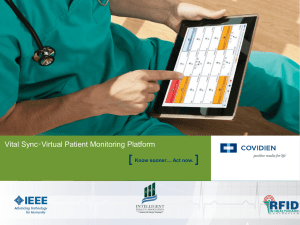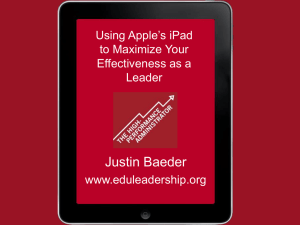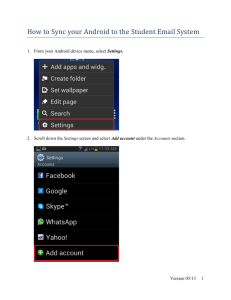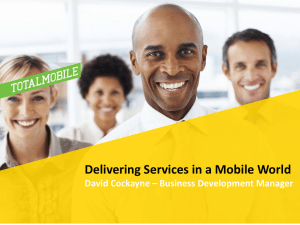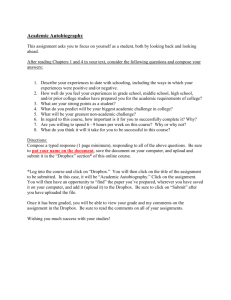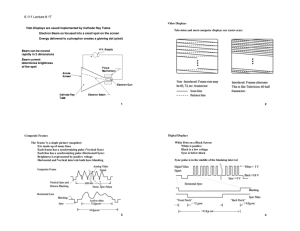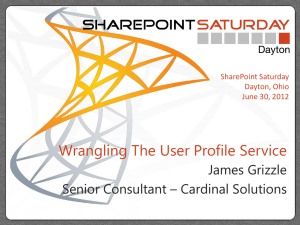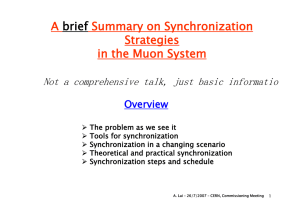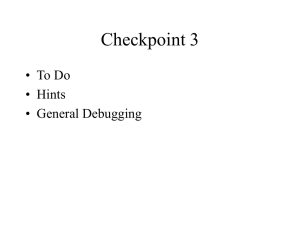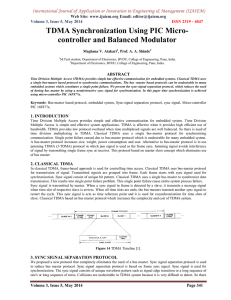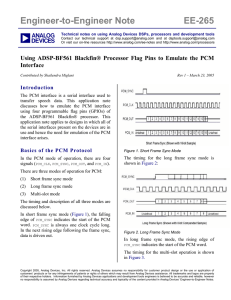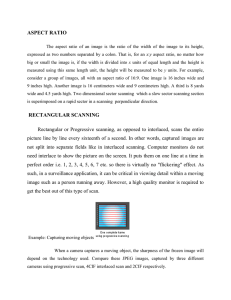A_(biased)_summary - Indico
advertisement
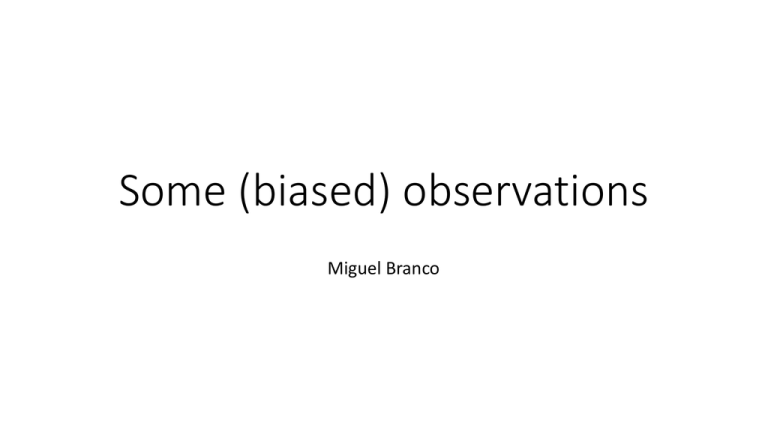
Some (biased) observations Miguel Branco Disclaimer • The views in this set of slides are my own, and not necessarily endorsed by my employer, employees, former CERN colleagues or friends. Disclaimer • The views in this set of slides are my own, and not necessarily endorsed by my employer, employees, former CERN colleagues or friends. • Information is provided “AS IS” without warranty of any kind. The information could include technical inaccuracies and/or typographical errors. Disclaimer • The views in this set of slides are my own, and not necessarily endorsed by my employer, employees, former CERN colleagues or friends. • Information is provided “AS IS” without warranty of any kind. The information could include technical inaccuracies and/or typographical errors. • Changes are periodically made to the information herein; these changes may (or may not) be incorporated in future editions of this publication. My background • I spent 6 years at CERN doing my best, but in practice, really making physicists’ life miserable. Things are moving fast • … lots of testing! • … lots of work! • … lots of ideas! • Some convergence of the underlying stacks: • OpenStack & friends nearly ubiquitous • A lot of ownCloud Open Source • Nothing but open source. • Nothing new here, but that’s an important message for vendors. • Core software open source • Higher-end features open source • Everything open source! A comment on “tech focus” • 1) SysAdmins seem to want a “Dropbox” that “I” can manage • 2) Storage people want to provide “Ease-to-use Storage” • I’ve seem more of (1) in talks (a more accessible problem right now?) • But (1) and (2) are NOT the same thing. • Suggest you consider explicitly where you are focusing. • Focus on what the science workflow needs. • Where are scientists spending 90% of their time? Is it sync’ing Word? A comment on “tech focus” Google Drive is 2y old. How will doc handling • 1) SysAdmins seem to want a “Dropbox” that “I” can manage look like in 2y? Will Word look like it does today?people At EPFL, some 18y CS students do not • 2) Storage want to provide “Ease-to-use Storage” know what “Office” is. They all know Google • I’ve seem more of (1) in talks (a more accessible problem right now?) Docs. (And GitHub.) • But (1) and (2) are NOT the same thing. • Suggest you consider explicitly where you are focusing. • Focus on what the science workflow needs. Where are scientists spending 90% of their time? Is it sync’ing Word? A comment on “tech focus” Google Drive is 2y old. How will doc handling • 1) SysAdmins seem to want a “Dropbox” that “I” can manage look like in 2y? Will Word look like it does today?people At EPFL, some 18y CS students do not • 2) Storage want to provide “Ease-to-use Storage” know what “Office” is. They all know Google • I’ve seem more of (1) in talks (a more accessible problem right now?) Docs. (And GitHub.) tech is NOT !=. Large vs thing. small-ish files? Updates: • Vendor But (1) and (2) are the same • Suggest you Peer-to-peer: consider explicitly where you are focusing. delta sync? locality? Low latency? High • Focus on what the science workflow needs. Where are scientists spending throughput? Security? Scope: 90% of their time? Is it sync’ing Word? metadata? Provenance? Future features: notifications: push VS pull? Verification • Sync is complicated • • • • • • How good is good enough? From Word files to mission-critical data? A Higgs analysis from data stored on “xxxBox” Mission-critical data in the scientific context is likely read-only (easier problem) … but datasets are bunches of files & if some missing, results biased (hard problem). So, well, this is not obvious. • “Academic” view: bugs/weirdness OK (they are obligatory) as long as understood • My gut feeling: if your efforts focus on “scientific mission-critical data”, then verification is the distinguishing factor to “other” solutions • “For our requirements – see here – our system works exactly as expected” Security: Authentication, Authorization, Accounting • Academic research groups really are hierarchical. • So are companies, so whatever companies use, should work for you as well. • Except, well, companies are directed acyclic graphs and science collaborations are not • These issues were mentioned in passing in nearly all talks, but inconclusive. • A non-trivial problem to address. Federation • Another dimension of complexity. • Banks are also federated. So whatever works for them… • Ah no. Science often needs to crosscut admin/bureaucratic barriers. • A “no no” in banking. • How do you handle this? • Intuitively, it is huge: “scientists” ‘freely’ sharing data, cross institution Encryption • Client-side encryption??? • Needed? Not needed? • Depends on what is the data being stored. CERNbox • Representative of the various efforts around. • I appreciate the focus on “look-and-feel”! • Convergence would be beneficial • This stuff is hard – particularly the last 20% - , so not point in diverging. • Like every other system presented, I have my reservations: • Trying to support multiple, seemingly widely different backends / use cases • Assumingly a 90% solution. Fair enough, but which 90% exactly? Let’s sync & share what we learn! • Workshop also indirectly really useful to: • Document systems’ behavior (in presentations) • Learn experiences; deployment models under consideration (future “best practices”) • [ Do more of this; particularly the templates Massimo/Jakub sent around ] • Future collaboration themes: • Dev side: Verification, Testing infrastructures (Deterministic even?) • Policy side: AAA (Authentication, Authorization, Accounting), Federation • SysAdmin side: Deployment experiences, Interoperability w/ legacy Analysis on top of file sharing • Baby steps still – e.g. Ganga • Potentially game changer to how physicists work • (I’ve seen the alternative… it is NOT pretty) • Exciting to me to have this as the “underlying infrastructure”, because it enables the #reallycoolstuff on top. • Interactive analysis • Share code, data, plots, histograms, results, reports together • Storage that gives you meaningful data • Suggest you spend time looking into this explicitly: it is a game changer. And what about you? • What are your views?
